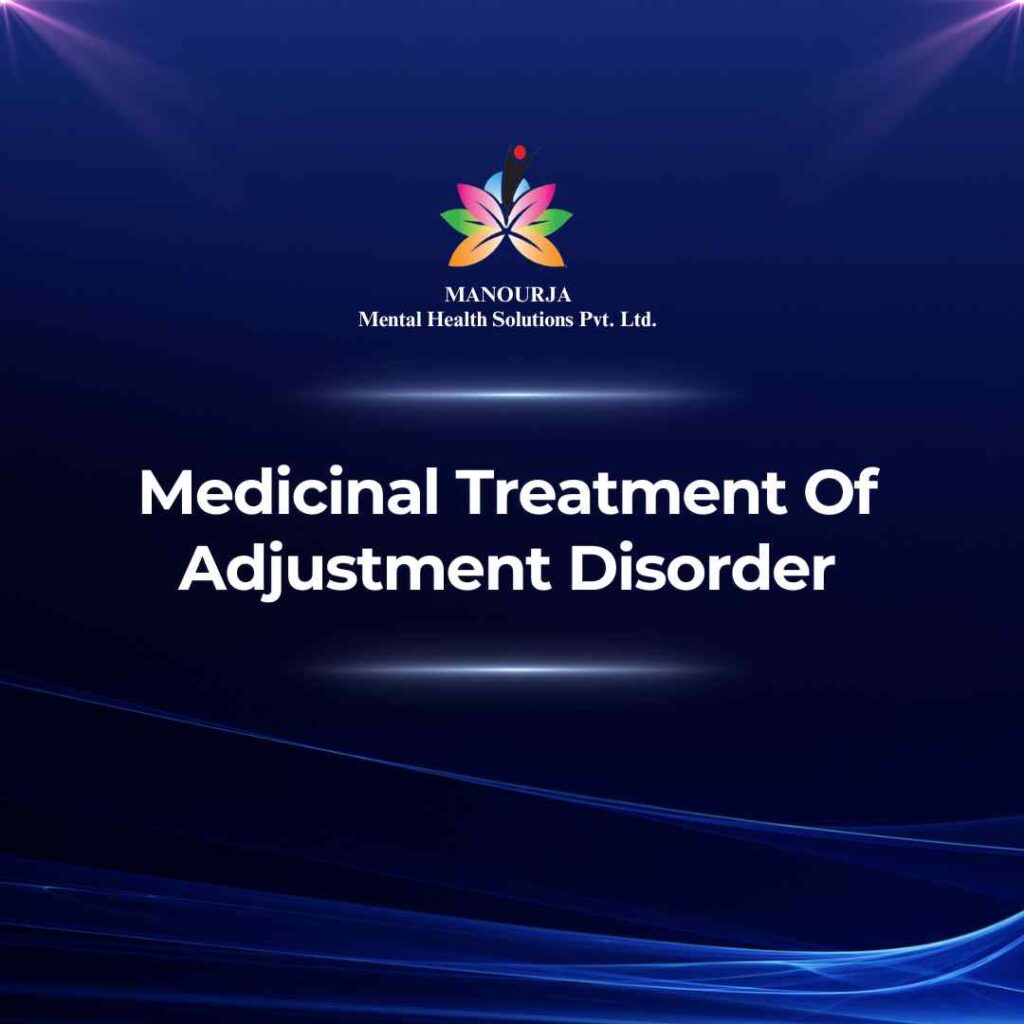Medicinal Treatment of Adjustment Disorder

Adjustment disorder is primarily treated through psychotherapy, but in some cases, medication can be used to manage specific symptoms, especially when they are severe enough to interfere with daily life and therapeutic progress. The decision to use medication is typically based on the individual’s particular symptoms, their severity, and the presence of any co-occurring mental health conditions.
Here is an overview of the medicinal treatment options for adjustment disorder:
- Antidepressants: While antidepressants are primarily used to treat major depression, they can also be helpful in managing depressive symptoms associated with adjustment disorder. Selective serotonin reuptake inhibitors (SSRIs), such as fluoxetine (Prozac) or sertraline (Zoloft), are commonly prescribed because of their relatively favorable side effect profile and efficacy in treating both depression and anxiety.
- Anti-anxiety Medications: For individuals whose adjustment disorder presents with significant anxiety, anti-anxiety medications may be prescribed temporarily to help reduce symptoms. Benzodiazepines, such as lorazepam (Ativan) or diazepam (Valium), can be effective but are generally used for short-term relief due to the risk of dependence and withdrawal issues. Longer-term anxiety may be managed with SSRIs or other antidepressants that also treat anxiety.
- Mood Stabilizers: In cases where there are intense mood swings, mood stabilizers such as lithium or anticonvulsants can be used to help control these fluctuations. However, these are less commonly prescribed for adjustment disorder unless there is evidence of a more complex underlying mood disorder.
- Sleep Medications: If sleep disturbances are a prominent feature of the disorder, short-term use of sleep medications might be considered to help re-establish a healthy sleep pattern. Options include over-the-counter sleep aids, prescription medications like zolpidem (Ambien), or even certain antidepressants that promote sleep.
- Beta-Blockers: Sometimes used off-label for managing physical symptoms of anxiety (like rapid heart rate and tremors), beta-blockers can help reduce the somatic symptoms associated with stress and anxiety in adjustment disorder.
It is important to note that medication is typically not used as a standalone treatment for adjustment disorder but rather as part of a comprehensive treatment plan that includes psychotherapy. Therapy sessions such as cognitive-behavioral therapy (CBT), interpersonal therapy, or other modalities can address the underlying causes of the disorder and help develop healthier coping mechanisms.
Medications can provide symptom relief, which may enable individuals to participate more effectively in psychotherapy. Continuous monitoring and adjustments by a healthcare provider are crucial, as is a clear exit strategy to prevent dependency on medications used, particularly for anxiety and sleep disturbances.
At MANOURJA, we believe in the transformative power of counseling. Our experienced therapists offer a safe and supportive space where you can explore your thoughts, emotions, and challenges. Through personalized counselling sessions, we’ll work together to develop coping strategies, build resilience, and achieve lasting positive change. Discover the path to a healthier, happier you with MANOURJA counselling services.
MANOURJA Rehabilitation Services
At MANOURJA, we’re dedicated to helping you in rebuild your life, after difficult times. Our rehabilitation services focus on understanding what you need to move forward, whether you’re recovering from addiction, trauma, or any psychological – social challenges. We create personalized plans, that are all about helping you, regain your strength and find hope again. With a caring team by your side, you’ll have the support to make real progress and take steps toward a brighter, healthier future.
